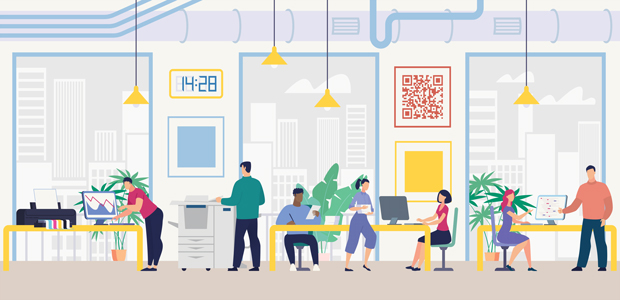
The current state of co-working
At the moment, co-working is in jeopardy, and it may be time for the industry to change once again.
Working for Introu - a startup that provides freelancers with office space in exchange for their contribution of skills and services towards their co-working community - I spend a lot of time liaising with some of the biggest brands in the co-working industry. These spaces are our partners, and we have to pay attention to the market closely.
The co-working industry emerged as a massive innovation. The idea was born from a hackerspace in Berlin, C-Base, in 1995. This first space encouraged its members to work together from a communal space, as a community of co-workers regardless of whether or not they work for the same company or were self-employed. Since then, the model has evolved quite a bit, with the modern co-working space being a fusion of private offices, hotdesking areas, and communal lounges and amenities that companies large and small share, to network or just relax over a coffee.
WeWork, the market leader and by far the most recognised co-working brand globally was created by the Israeli businessman Adam Neumann with the communal living and working arrangement of a kibbutz in mind. So, what is the one consistent element throughout the history of the sector?
Sharing.
This poses a difficult question for workspace operators; as the world emerges from the COVID-19 pandemic how can they maintain a co-working model in their buildings in a landscape where their customers often want to stay as private and as distant as possible.
Office workers across the UK have been driven into their own homes for the past year, but it is looking more and more likely each day that they will be allowed back into their workspaces very soon. There is a huge appetite for returning, the novelty of working from home has worn off. Each day, you can read about ways that office workers are trying to shift back to normal. The most liked part of working from home (with 79.3% of people claiming this) is that there is no commute. Bizarrely, even this is now changing, with reports of people starting to walk during the time they would normally be on a train or in their car. This could mean one of two things, either these people are gearing up to get back to life as usual, or they genuinely miss their 9-5 office day. Either way, co-working spaces of every variety need to start preparing themselves for an influx of returning customers.
Greg Feld-Davidovici, Co-Founder of AW Offices, a co-working space in Kings Cross, told me that he was looking forward to seeing his community returning very soon: "I don’t expect that the space will be the same in a post covid world […] we will see less people in the office than before." He is right, the way that people use space will evolve, as it naturally does in the office space industry. This is the very reason that co-working was born. However, this particular evolutionary stage has been spurred on by a powerful catalyst. One of his predictions is that larger companies will transition towards smaller offices, as their employees strike a balance between working from home and working in the office.
"A company with 20 employees will downsize to a ten desk office. People still see the benefits of working from home, but they don’t want to do it all the time. We’re going to see a renegotiation of the terms of working across every sector," he added. A day after he told me this, streaming giant Spotify implemented this as their policy. Their employees will now be able to choose how much they will work in the office, and how much time they spend at home, without any input from the company. But what will be the balance? Greg thinks it will favour the office. He finished by saying: "People who think we’re going to continue holding important meetings in our pants over zoom all day long, they’re delusional."
Co-working is at a critical junction, and once again it’s time for the industry to innovate. In order to get people back into their space and paying rent they need to reconsider their offering and focus on providing more of what made co-working great in the first place. It seems that flexibility will be the new normal, and spaces can capitalise on this. Flexibility is something so natural to the co-working industry, and when people start to filter back into workspace, a co-working space can tailor office solutions to every company that walks through their doors. Granted not every team member will want to come in every day, but for key meetings, busier periods or just to get out the house it seems that they will be getting back on the commuter train. Co-working buildings are empty right now, but they won’t be forever.

